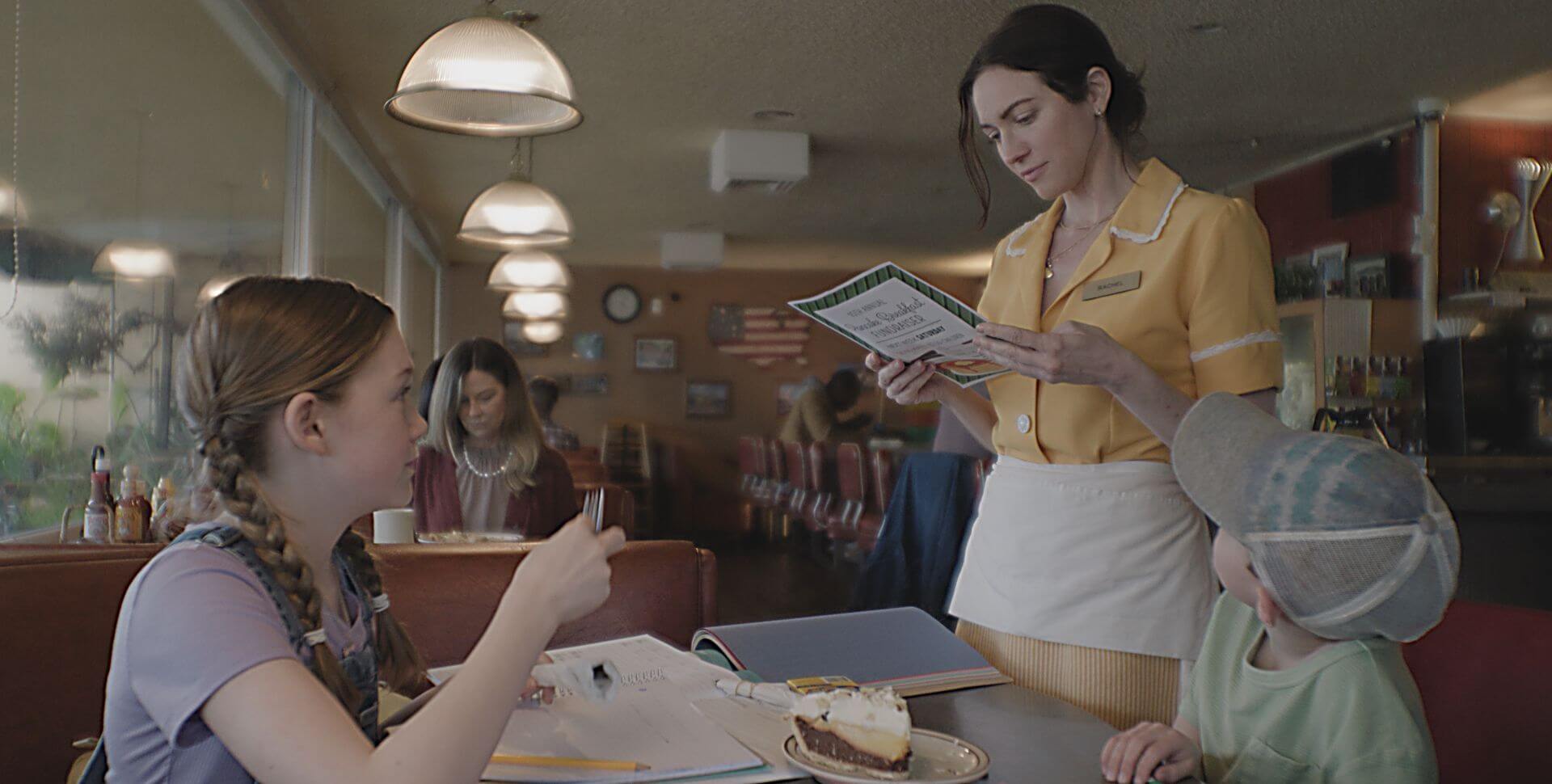Nominated for Best Live-Action Short Film at the 2024 Academy Awards.
Red, White and Blue is a short film that follows a poor single mother who must go out of state for a necessary abortion.
Your film is about a young woman trying to raise money for an abortion as reproductive rights are being eroded across the country. What inspired you to take on this story?
I was listening to the news after the Supreme Court had overturned Roe v Wade and so many stories were being reported on a daily basis about the real-world consequences on those whose reproductive rights had been affected. I think I was absorbing and digesting so much on this issue that I woke up one weekend in July with the script fully realized in my head which I then laid down in script form in the space of about 2-3 hours. That script is pretty much entirely what became the final film, albeit with the necessary changes needed to adjust for practical adjustments for location and schedule, etc.
Which films/directors have influenced you as a filmmaker as well as your short, Red, White, and Blue?
There are so many directors who I respect and admire - Steven Spielberg, Martin Scorsese, and Alexander Payne are just three of my heroes that I recently met at the Oscar Nominees’ luncheon - but I also deeply admire Denis Villeneuve, Greta Gerwig who is the loveliest powerhouse (I have loved her since I first saw her in Frances Ha), and the brilliant Emerald Fennell. I think what I respect about all these filmmakers is that they each have their own very distinct voice and, therefore, instead of emulating their style, I prefer to emulate only bringing my own specific voice to my work, so it is distinctively my own.
Without giving away too much, there is a deeply affecting twist that comes in the latter half of the short. Was it always your intention to reveal this harrowing detail at the end rather than lead with it?
Yes, because I wanted to challenge preconceptions of what you think the story is and land the idea that none of us really know what someone’s story or predicament is until we know it. It’s easy to dismiss someone and think you know everything that’s going on in their life and what they’re dealing with but we so often don’t. It is set up to challenge us and start an internal conversation within ourselves first, and then hopefully another conversation with others in which we can express our humanity.
Throughout her journey to get the abortion, many women offer our protagonist a helping hand. Was it important to show this kind of female solidarity?
Absolutely. The elephant metaphor that we use throughout the film and at the end of the film points towards the matriarchy in which women see one another and help each other (male allies are welcome). The elephant has symbolism in our film as a favorite childhood toy and a ride chosen on a carousel. The subtext revolves around a loss of innocence and the well-established idea that elephants never forget; but, ultimately, it is used as a way of suggesting the herd of elephants – the matriarchy - that will protect you when you most need it.
What do you want audiences to take away from your film?
My simple hope is that it changes enough hearts and minds to start a conversation and that we understand that humanity and compassion transcend politics. Abortion as healthcare is not a political issue. It’s a basic human right and it’s about survival.
